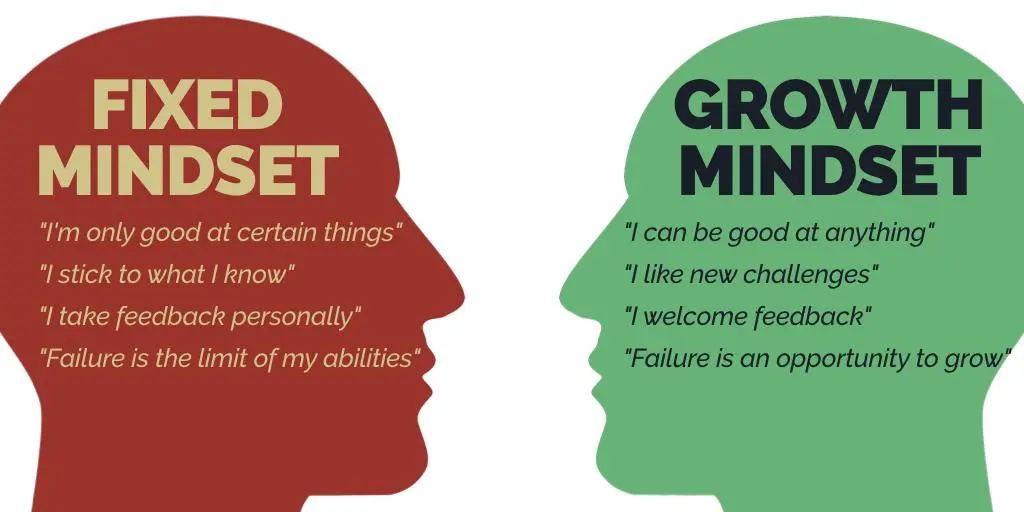Imposter syndrome is a silent, powerful force. It can destroy your confidence and hinder your career. It’s that nagging feeling that, despite your accomplishments, you’re unqualified. Worse, you are a fraud who waits to be exposed. Many share your doubts about their abilities and worth. You are not alone in fearing you don’t belong in your position.
I remember my first day at a new job. My colleagues have it all figured out. I felt out of place, overwhelmed, and terrified. I feared someone would discover I wasn’t as capable as they thought. It was imposter syndrome at its peak. I even questioned how I had managed to secure the job in the first place. I didn’t know, but these feelings are common.
Research shows about 70% of people experience imposter syndrome at some point in their careers. In the 1970s, psychologists Pauline Clance and Suzanne Imes first identified this phenomenon. It found that high-achieving people often feel like frauds despite their success.
Imposter syndrome at work affects many professionals, from entry-level employees to execs. It causes self-doubt and a fear of being “found out.” But here’s the good news: these feelings don’t have to control you. Overcoming imposter syndrome isn’t about faking confidence. It’s about changing your mindset and understanding its psychology.
This article will share five research-backed strategies to overcome imposter syndrome at work. Each comes with actionable steps. These strategies will boost your confidence and silence your inner critic. They will help you reach your full potential. No matter your career stage, these tools will help you. They will boost your confidence and banish self-doubt. You’ll be ready to succeed.
Understand Imposter Syndrome – The First Step to Overcoming It
Imposter Syndrome is a mental pattern. It makes people feel like frauds. They doubt their abilities and fear being exposed as incompetent. This is despite proof of their skills. It’s a common phenomenon that affects professionals across all industries. If you often feel unworthy of your achievements, you may have this condition. You may think you “got lucky.” The first step to overcoming Imposter Syndrome at work is to recognize these feelings.
The Psychological Roots of Imposter Syndrome
Psychologists cite three main causes of Imposter Syndrome: perfectionism, childhood experiences, and societal pressures. Perfectionists often set unrealistically high standards. They feel like failures when they can’t meet them. Also, societal expectations, like the “self-made” myth, worsen these feelings.
Psychology Today says that, by knowing these factors, people can spot their distorted thoughts and shift their mindset. By addressing the root causes, you can reframe your perception of success and work towards overcoming imposter syndrome at work.

How Imposter Syndrome Affects Your Career
Imposter syndrome can have a detrimental impact on your career trajectory. It can prevent you from seeking new opportunities, taking on challenges, or asking for promotions due to the fear of being “found out.” This fear often leads to missed opportunities for growth, stagnation, and burnout.
Research shows that people with imposter syndrome are less likely to advocate for themselves. This is despite being highly qualified for their roles. To unlock your true potential, you must overcome imposter syndrome. It’s key to moving beyond your limits.
Real-life Examples of Imposter Syndrome at Work
Imposter Syndrome affects even the most accomplished professionals. Take, for example, Sheryl Sandberg, COO of Facebook. She has spoken openly about feeling like an imposter during her rise in Silicon Valley. Similarly, actor Tom Hanks has felt this way despite winning multiple Oscars.
These stories show that imposter syndrome is not exclusive to those who are “new” to their roles—it’s something that even high achievers face. Knowing that these successful people faced the same doubts can help. It can normalize the experience and provide a path to overcome imposter syndrome at work.
5 Proven Strategies to Overcome Imposter Syndrome at Work

Reframe Your Thoughts: Challenge Negative Beliefs
One of the most effective ways to overcome imposter syndrome at work is through cognitive reframing. This psychological technique involves shifting the way you perceive your abilities and achievements. Instead of attributing your successes to luck or external factors, recognize the hard work, skills, and effort that went into them.
Dr. Valerie Young, an expert on imposter syndrome, says that a mental shift can reduce feelings of inadequacy. Start by replacing thoughts like “I don’t deserve this promotion” with “I earned this through my hard work and expertise.” As you begin to challenge these negative beliefs, you’ll feel more empowered and confident in your role.
Seek Feedback and Mentorship
Another powerful way to overcome imposter syndrome at work is by seeking feedback and mentorship. Get feedback from trusted colleagues or mentors. It helps validate your skills. Feedback serves as a reminder that your skills are recognized and valued by others, providing a sense of reassurance.
Dr. Tara Swart, an expert in neuroscience and leadership, emphasizes that mentorship can also help shift your perspective from self-doubt to self-assurance, reinforcing that you are not alone in feeling like an imposter. Don’t hesitate to reach out to others for feedback – it’s a crucial part of growth and a reminder of your true potential.
Celebrate Your Wins, No Matter How Small
To build lasting confidence, it’s essential to celebrate your wins—no matter how small they may seem. Imposter syndrome thrives when you overlook your achievements, believing they’re not significant enough to warrant recognition.
Start by acknowledging even the smallest successes. This could be finishing a tough project or getting praise from a colleague. One powerful practice is keeping a success journal where you record daily or weekly accomplishments. This helps you stay grounded and reinforces a mindset that acknowledges your value.
Dr. Brené Brown, a renowned researcher, studies shame and vulnerability. She says that self-acknowledgment is key to building self-worth.
Shift from Perfectionism to Progress
Perfectionism is a major fuel for imposter syndrome. When you set unrealistically high standards for yourself, you’re setting yourself up for failure. Instead, focus on progress, not perfection. Embrace mistakes as opportunities to learn and grow. This shift in perspective is crucial.
Perfectionism often creates a cycle of self-doubt. It reinforces feelings of being a fraud. By celebrating small gains and learning from failures, you’ll see that growth comes not from perfect execution but from consistent effort. This mindset change can drastically reduce imposter syndrome and boost your confidence over time.

Build a Supportive Work Environment
Finally, one of the most effective ways to overcome imposter syndrome at work is by fostering a supportive work environment. Surround yourself with individuals who uplift and encourage you. Positive relationships in the workplace are essential for combating feelings of inadequacy.
When colleagues see your value, it boosts your confidence. Their encouragement and feedback help too. Besides seeking mentorship, engage in networks that support mutual growth. A trusting, collaborative environment can help you overcome self-doubt and embrace your potential.
Psychological Insights to Strengthen Your Confidence
The Role of Self-Compassion in Overcoming Imposter Syndrome
Dr. Kristin Neff, a top self-compassion psychologist, studied imposter syndrome. Her research shows that being kind to yourself is key to overcoming it. Instead of harshly criticizing yourself after mistakes, be self-compassionate.
Treat yourself with the same kindness you would a friend. This shift can help counter the inner critic that amplifies feelings of inadequacy. Self-compassion helps build confidence. It lets you see setbacks as chances to grow, not failures. In moments of self-doubt, ask yourself, “How can I be kind to myself and learn from this situation?”
This will help you silence the negative voices and embrace your potential.
Understanding the Impostor Cycle
Imposter syndrome often creates a cycle that is hard to break. It starts with a small self-doubt, which spirals into overwork as you attempt to prove your worth. This leads to exhaustion, reinforcing the feeling that you’re not capable, even when you are. Recognizing this cycle is essential to disrupt it.
You can break free from a cycle. Feelings of inadequacy can lead to overcompensating through extra effort. Understanding this will help. Just knowing this can help you manage your thoughts. It can shift you from fear and stress to balanced confidence.

Developing a Growth Mindset
The concept of a growth mindset, introduced by Carol Dweck, is pivotal when overcoming imposter syndrome. A growth mindset believes that abilities and intelligence can grow. They are not fixed. With effort and perseverance, we can develop them. This mindset sees challenges as chances to learn, not as threats to your skills.
Mistakes are viewed as valuable. They help long-term growth. A growth mindset means you don’t need to be perfect. Instead, you focus on improving. In every challenge, you’ll find the potential for growth and see setbacks as stepping stones in your journey to success.
Using Mindfulness to Manage Self-Doubt
Mindfulness practices help you stay grounded in the present moment, reducing the power of self-doubt. Think of mindfulness as a way to declutter your mind. It clears out heavy thoughts. It creates space for clarity and focus, and helps you stay present. Staying present calms your racing thoughts. It helps you tackle tasks with clarity and confidence.
Mindfulness lets you observe your feelings of inadequacy. It stops them from controlling your actions. This ability to detach from imposter syndrome’s spiraling thoughts lets you focus on the task at hand. It fosters a more balanced and confident approach to work.
Advanced Techniques for Long-term Success
To overcome imposter syndrome at work, use advanced techniques. They will boost your confidence and growth. These strategies provide more than short-term relief. They help you build a success mindset for the long term. Integrating them into your daily routine will boost your resilience and confidence. You’ll then be able to navigate challenges better.
Visualizing Success to Build Confidence
Top performers use visualization. It is a powerful tool. Imagine yourself succeeding in your role—what does that success look like? How does it feel to achieve your goals? Mentally rehearsing these successes reduces anxiety and self-doubt. It helps prevent imposter syndrome.
Studies show that visualizing successful outcomes not only helps boost confidence but also prepares your brain to act when the opportunity arises. The more vividly you see yourself thriving, the easier it becomes to step into that reality.
Cultivating Emotional Intelligence at Work
Emotional intelligence (EQ) is key to overcoming imposter syndrome and succeeding at work. High EQ allows you to understand and manage your emotions, which in turn helps you respond to challenges with clarity and confidence. Emotional intelligence helps you stay calm under pressure. It lets you empathize with others and navigate workplace dynamics.
Daniel Goleman says emotional intelligence is key. It separates high performers from those who struggle in their careers. Investing time in your EQ can boost your performance. It can also improve your relationships with colleagues and superiors. This will help you feel more secure in your abilities.
Using Positive Affirmations to Reframe Beliefs
The way we speak to ourselves shapes our reality. Affirmations can challenge and reframe the beliefs that fuel imposter syndrome. They are a powerful tool. Consistently repeat positive statements like, “I am capable,” “I bring value to my team,” and “I deserve success.” Doing so will reprogram your brain.
It will focus on your strengths, not your flaws. Over time, these affirmations can help build self-worth, shifting the narrative from “I’m a fraud” to “I am deserving of my success.” Say them aloud or write them down. The key is to make them a daily habit. This will reinforce that your hard work and talent caused your achievements.

Create a Personal Action Plan for Consistent Growth
Building confidence and overcoming imposter syndrome aren’t a one-time fix. They require a continual process. A well-structured action plan provides the roadmap you need to track progress, set achievable goals, and measure success over time.
Start by breaking down your larger goals into smaller, manageable steps that you can tackle one at a time. For instance, instead of aiming to “improve at work,” set goals like “seek feedback from a colleague once a week” or “complete a training course to enhance skills.”
Each small win builds momentum and your self-belief. This will reduce the grip of imposter syndrome on your work life. A clear action plan also gives you a sense of control, which can combat the feelings of being an outsider in your career.
Overcoming imposter syndrome at work takes time. It’s a journey that needs patience, persistence, and the right strategies. But, by reframing negative beliefs and seeking mentors, you can. You can also use proven psychological techniques. They will help you break the cycle of self-doubt that holds you back.
Confidence isn’t built in a day—it’s built through consistent action and a commitment to growth. Every step you take toward self-empowerment, no matter how small, contributes to a stronger, more confident you.
Remember, you’re not alone in this. Many successful professionals have faced imposter syndrome and come out stronger on the other side. So, take the first step today—reclaim your power, trust your abilities, and watch your career soar. The success you deserve is waiting for you.
